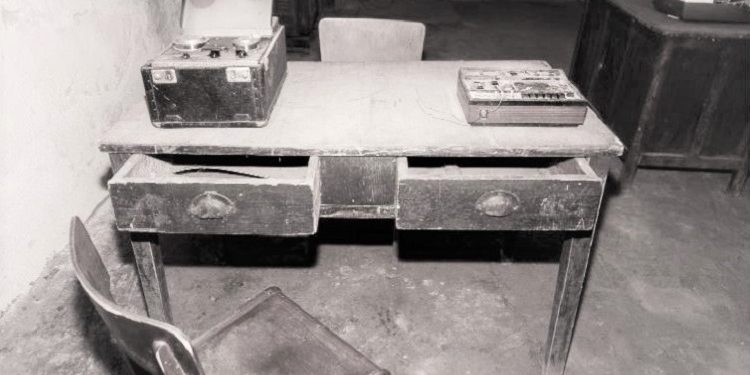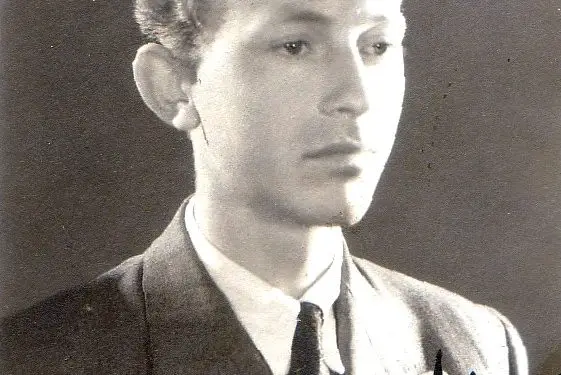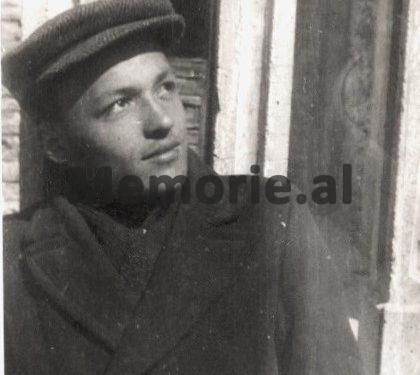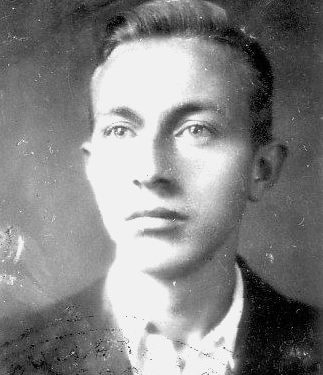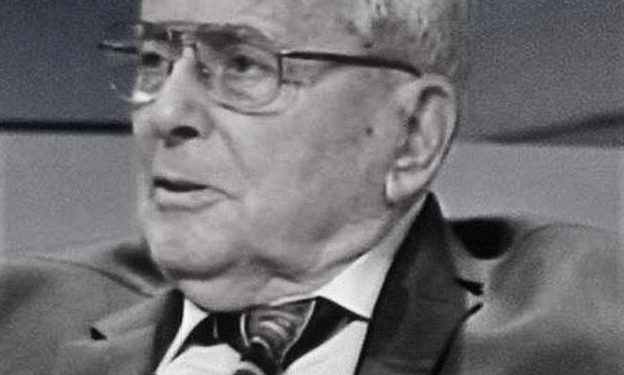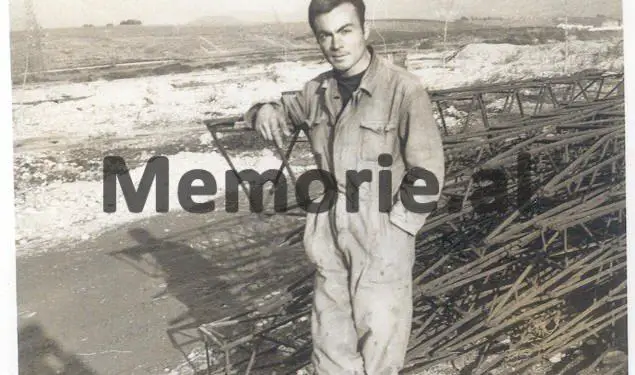By Uran Kalakulla
Part Seven
Nazism and communism
Memorie.al / Nazism lasted 12 years, while Stalinism lasted twice as long. In addition to many common characteristics, there are many differences between them. The hypocrisy and demagogy of Stalinism was of a more subtle nature, which was not based on a program that was openly barbaric, like Hitler’s, but on a socialist, progressive, scientific and popular ideology, in the eyes of the workers; an ideology that was like a convenient and comfortable curtain to lie to the working class, to lull the sharpness of intellectuals and rivals in the struggle for power.
One of the consequences of this peculiarity of Stalinism is that the entire Soviet people, its best, most capable, hardworking and honest representatives, suffered the most terrible blow. At least 10-15 million Soviets lost their lives in the torture chambers of the KGB, martyred or executed, as well as in the camps of the Gulag and others like them, camps where it was forbidden to correspond (in fact they were prototypes of the Nazi death camps); in the mines in the ice of Norilsk and Vorkuta, where people died from cold, from hunger, from crushing work in countless construction sites, in the exploitation of forests, in the opening of canals and during transportation in inflatable wagons, or in the flooded barns of the death ships.
Continued from the previous issue
Dungeon No. 6, my first dungeon
I have never been superstitious, but this number turned out to be very unlucky for me. Because in addition to the first dungeon, the courtroom where I was sentenced to death also had this number. In this case, I was also reminded of Chekhov’s famous novella, entitled “Hall No. 6”, a novella with which, not only I was deeply moved, but even Lenin, before he himself became a ruler, as his biographers say, when he read it, was deeply shocked. But later, in power, he invented hundreds and thousands of such “halls” “No. 6”, which no longer shocked Comrade Lenin at all, but terrified and cruelly took the lives of millions of victims. So, this number six became for me then something like a symbol of evil. But let’s continue the story.
After telling the telegram, the mayor got up and ordered me to be taken away. Besim Selita, the third person, grabbed me by the arms and put me in a “Gaz 59” and we set off, down “Rrugës e Dibrës”, to “Skënderbej” Square and along “Marsel Kashen” Boulevard, as today’s “Jeanne d’Arc” Boulevard was then called, where I had my apartment. For a moment my mind deceived me that they were being very humane and were taking me home, by car. And this was more than a deception of the mind; it was a burning desire of the soul. Oh, how human desires grow in great misfortunes!
But the car continued on. I noticed the windows of my apartment. They were dark. And it pierced my soul, when I thought how worried my mother and sister would be, that my wife was not in Tirana at that time. And I had never had the habit of being so late, without notifying them in advance. “Gaz” turned right and entered the courtyard of Region No. 2, as it was then called, where today the Police Commissariat for the whole of Tirana is headquartered, but which the people continue to call the Internal Affairs Branch.
The escorts handed me over to the guard officer and he ordered two police officers to take me to the dungeon. We went down some underground stairs, reached a corridor full of humidity and the smell of mold and the police officer opened the door to the dungeon. It must have been three after midnight. My first dungeon, I saw clearly, had the number 6! In the dim light of a weak electric lamp, I made out the silhouettes of two human beings, who had been lying down and immediately stood up, startled. I had the idea that they would be two unfortunate people, like my job. It was the first time I had met prisoners so close.
When the door slammed shut behind me, the two living shadows approached me and “welcomed” me, humanely. A beautiful welcome! They had been lying on some thin, dirty, miserable blankets. And they invited me to sit down next to them. I looked around. The dungeon was no bigger than three meters, three, a human ink or something more underground, paved with boards that were not only dirty, but also smelled of mold. It seemed that humidity had its chosen lair there. The walls were also dirty, although they had once been whitewashed. And so was the ceiling.
I felt as if something was squeezing my throat. It was anxiety, disgust for that place. And when it occurred to me that I would spend who knows how long in that room, a great gloom seized my soul. Spiritually crushed as I was, I felt a great physical fatigue, as if I had done a very heavy and long manual labor. And when my “colleagues” now invited me for the second time to sit next to them, then I did as I was told, but not sharing my feeling of disgust, for that filth of the environment.
They were both dressed in jeans, and I was in my elegant and new suit. They were shaved, and I had hair. They had not shaved for days, I had just shaved. They were unwashed, they smelled, and I still smelled of soap. In a word, they were both mimed with the world of darkness, and I had just been forcibly separated from the light of the sun.
The truth is, they both received me well, even with great respect. Perhaps my appearance, my clothes, my attitude gave them to understand that I was not one of those street pickpockets or those villains who make trouble in taverns. How could I know what kind of crazy person was locked up in those six dungeons of that basement? Then, all my life I have always had contempt for the ordinary element, which reached the point of disgust, both for their moral content and for their appearance. Disgust to the point of shuddering.
I had known for a long time that political prisoners were not mixed with ordinary people, but in that police district, what did a politician like me want? Ordinary people were usually mixed there. Or, for lack of space, had they mixed me with them? And they started asking me. I told them that I had been arrested in the evening and I had no idea why. And that I had done nothing illegal. And one of the two, a young man, said that he had been arrested for escape. So he was also a politician. The same goes for the other one. And they both spent 15 days in that dungeon.
-How many?!!! – I almost cried out in amazement. I couldn’t understand how a person could endure such an environment for all those days. My lack of personal experience up until then, despite what I had heard about prisons, didn’t allow me to believe that so many days in a dungeon were just the tip of the iceberg, floating in the frozen ocean of immense and extremely painful suffering in a communist prison. And so, when I think back to my surprise at that time today, I not only laugh at myself, but I also get angry.
The two of them were physically completely different. And, as I later noticed, they were even more different spiritually. The younger one was tall, the older one was somewhat short and lanky. The young man looked like a tall child, like a snail, with a face full of pussies, a snub nose and two eyes that openly showed his naivety. The other had a somewhat crooked face, like his body, a few golden teeth in front, with a sly smile and eyes, a narrow forehead, within which intelligence could not dwell, but only cunning. The young man was called Mihallaq Havaleja. The other Qemal. I have forgotten his last name. The first resident of Tirana, the second from Vlora.
Later I learned that at that time, Llaq seemed good, naive as he was. While the other was mean, because he was there to dismantle the young man, like a professional dungeon rat. And later I learned that that poisonous rat, after having bitten the young man well and good, had injected him with the poison of his own blood and thus Llaqka had become a camp spy, if not to a more specialized degree, that of a dungeon rat.
They asked me if I had eaten. And when I told them no, they wanted to give me something, but I refused. Not only were I not hungry, but their hands, the bags, the environment, and above all the worries I had, made me not feel hungry at all. I only accepted a cigarette from them, which, when I lit it, seemed to me to begin to calm down, to begin to get used to something, to that kind of place.
It must have been three o’clock, after midnight. By then, I couldn’t sleep. But slowly he started to approach me. Willingly or not, I accepted their invitation to lie down there too. I had left my shoes outside the dungeon, of course, and there I was in my socks. I lay down. I rolled up my jacket and made it into a kind of pillow, tormenting my soul for the new suit that I was so anxious about. It was the first time I had slept with my clothes on. And I fell asleep.
I don’t know how long I slept, an hour or two, because I was woken up by a loud knock on the door. I woke up, dazed and scared. The other two had also woken up; the wake-up call had already been made. It must have been five in the morning. The two fellow prisoners told me what was going on. They got up faster and got ready. They were going to go to the toilet, to relieve them and to wash their faces. I heard the doors of the dungeons opening, the voices of the police urging me to do everything quickly, the water running, and so on.
Finally, our turn came. In the corner of the corridor, there was what my two companions called the bathroom. Why bathroom? It was simply called a dump: a hole in the cement, and a tap in the side of the wall, enough so that the water would make porridge on your feet. I just urinated, rinsed my hands, and threw a couple of handfuls of water on my cheeks, and went back with the others, but to the dungeon, under the escort of the policeman. I didn’t even have a handkerchief to wipe my hands and cheeks with, let alone a comb to comb my hair.
The other two both wiped themselves with a kind of small, dirty rag like them. There was no need for a comb, because they were shaved like recruits. And on this kind of mess, they sat down to eat breakfast: two loaves of bread, two slices of cheese and a small onion, which they split in half with their long, black nails. They offered me something to eat again. But I still refused, although, to tell the truth, I was starting to feel hungry. But better hungry than that kind of food. I just asked for a cigarette and with that “breakfast” was over.
After that, as the other two lit a cigarette, they started asking me again why they had arrested me. And I was all in my element, because I had no idea why they had brought me there. Then that crooked man told me that of course, some mistake had been made, that I should have faith in the government, that it would quickly correct the mistake made and that it was no wonder that they had released me that very day. I listened to him silently and strangely as if he liked me too, as if it were true.
Seeing that I was not very inclined to talk, Llaqka and Qemali began to argue with each other. The young man stood up, threw one of those two stinking blankets over his arms, like a cape, and once he started to wander around the room, doing ballet, then he started to take theatrical poses, as if he wanted to imitate the role of Hamlet, which he had seen in the cinema.
His friend, Qemal Çalaman, had a kind of pleasure in his eyes, as if he were seeing his girlfriend posing for his pleasure. And seeing this kind of joy, which almost went to the point of adoration, it suddenly occurred to me that there had been some homosexual relationship between them. So, Llaqka as a prostitute or a prostitute, and Çalaman in the role of the active one. So this Çalaman, performed two functions there, that of a dungeon rat and a pederast. And it suddenly occurred to me that my presence there had ruined things for both of them. And I felt such disgust, that I wanted to throw out my intestines, even though I had nothing in my stomach.
An even greater disgust than what I had felt from the beginning, from the filth of that environment. After all, one can get used to physical filth, with difficulty, but slowly and through hardship, but with moral filth, I felt that I would never be able to get used to it. It must have been mid-morning when the door of the dungeon opened and the policeman told me to come out and follow him. And I followed him immediately, with a foolish hope that the old man’s previous words had really come true. Isn’t it said that a drowning man grabs at straws out of a desire to escape?
The policeman took me into a small office, where the head of the Branch was waiting for me. He told me to sit in a chair in front of the table where he had taken a seat, and so the interrogation began again. He with his questions and I with my categorical refusals. But he neither cursed me, nor hit me, nor threatened me. On the contrary, he was behaving very humanly, almost as if with a kind of pity. Could the latter be true? Bah! Either it was a kind of tact of his, or that functionary, he did not like violent actions and sought to get where he wanted, softly and softly, as if without feeling, like a snake that does not have the teeth of a tiger and a shark, but only two, enough to inject deadly poison.
This new interrogation did not last long and again the police took me with them and took me back to prison no. 6, where I stayed for three or four days and then they took me away, to take me to Durrës. But that is a separate story…!
Motor prison
After three or four days of arrest, they took me out of prison no. 6 and put me in a car that, as I later learned, was called a motor prison. So, the prison, or rather the dungeon, has been put on wheels and the prisoner is only allowed to travel in this vehicle, especially when you are in the interrogation room and no citizen who is not yet imprisoned should see you. In a word: you are like a secret being. Of course, the prison car was a closed car, like a kind of armored car, but without its own weapons, because the weapons were in the hands of the police officers who accompanied you and who sat with the driver, in the front of the car.
The prison car had a heavy shadow for the citizens, who knew what it was for. Although you could compare it more to a funeral car, it had its own peculiarity. It could serve, why not, in certain cases, also as a car that transported the dead, but always when these dead had been prisoners, ended up in prison, or executed. Thus, the prison car is more of a coffin for the living prisoners, that is, “the living dead”, as Dostoevsky called them in his time, a name that under the regime of Enver Hoxha, and certainly Stalin’s, fits the miserable reality of that time very well, right in the middle of the twentieth century.
In the prison car, of course, I was not alone. I was in the front and Tanushi in the back. I say this because we could not see each other. In fact, Tanushi was somewhat worse isolated than me. “Why this privilege for me”, I asked myself. And this question led me back to the train of thoughts that constantly tormented me. And these thoughts, then, naturally and logically created other questions. This work resembled the eternal alternation between the plant and its seed, when it is known that both of these ends of plant life are conditioned and commanded by the reality of the genetic code.
And, so, these new questions were: Did Tanushi says anything? Did he tell Pjetir about the existence of the Tirana group? And Agim, how did he stand it? Did they catch Pjetir that damned project-program? If so, he was opening us up to very big trouble. Reasoning like this, the journey of the prison van to Durrës, as far as I could understand, meant that the Sigurimi, by catching that damned project-program, had concluded that the “center” was in Durrës and not in Tirana. Thus, assessing the direction of the responsibilities of each of us, the newly arrested, it was now clear that the main ones were Pjetir and Zeqiri.
After them, came Tanushi as the liaison and, finally, me, as the victim of Pjetir and Tanushi. It was logical (seen through the eyes of self-interest) that I should receive the least punishment, but, of course, if the existence of the Tirana group did not come to light. So, the stance of Tanush and Agim, as the first arrested members of the Tirana group (albeit together with me), was very important. And, if the Sigurimi’s discovery would remain until this stage, then, even without looking at the matter from the perspective of self-interest, I was convinced that the sentences would be much lighter for the four of them: Pjetr, Zeqir, Tanush and me.
But could this variant stand until the end? This was an even more pointed issue than a Hamletian alternative. Finally, Hamlet’s dilemma, in its solution, depended only on his own decision, while in our dilemma; the solution depended very little on our desire or will. It depended on those who, already, had us in their hands. And these were not beings that were inclined towards goodness; on the contrary, they were ominous messengers of Lucifer.
In dungeon no. 6, the day after my arrest, my family came and brought me more clothes: an old suit, second shoes, some underwear, soap, a towel, some food, a few packs of cigarettes and matches, a mattress, a quilt and a veil. So, I had them with me. It was really something comforting for me that, in a way, I could avoid permanent and direct contact with the filth of the dungeon. But, did those “good things” really catch my eye, when I had such a big dilemma in front of me that it was shaking my head? Then, where were they taking us? What awaited us in Durrës? Would I be able to see my wife, son, mother again, at least once?
Oh, God! In my life I have never had a more disturbing and difficult journey than that damned prison car. In the prison car, on both sides, there were guards. They stood like zombies. Their presence so close bothered me. I was not handcuffed. Until then, I had not known the shackles. Wasn’t I still considered a prisoner, but a pre-trial detainee? Who had invented such an idiotic name? Pre-trial detainee! Did this mean that I still didn’t have the right to “taste the taste of prison”? And prison no. 6, what was it?! A place of entertainment?!
And the guards, right under my nose, what were they?! Personal guards or, as they call them today, in vain, “body guards”?! At that time, even before imprisonment, I had always felt discomfort from the proximity of military personnel, especially police officers, of whatever rank they were. Back then, military uniforms meant to me: a pillar of communist power, the basis of the dictatorship’s survival, a fanatical defender of it and of the tyrant’s throne. And it seems to me that, like me, all the others who were not communists, or servile and servile to power, saw military uniforms in this way. They were not uniforms that protected a just state system, or a democratic party, but rather they were protectors of the system of violence, even the police themselves, they were the direct weapon of the dictatorship or, as the dictator himself said, its “sharp sword”.
And thinking like this, as I glanced out of the corner of my eye at the two scoundrels, who were almost taking my breath away with their presence, I felt, I knew hatred and disgust. And I said to myself, how the hell do these people eat bread, when they know that their food and that of their families is secured by torturing others, even taking their own lives? And these others were not criminals, nor murderers, thieves, rapists or I don’t know what else, but they were people who opposed that regime, precisely because it was evil, vile, oppressive, exploitative, cruel, and bloody. So, these were the guardians of evil, the guardians of the kingdom of the devil.
Meanwhile, it seems that the prison van had reached the place it was headed for, because not only did it stop, but when it started moving again, it backed up and stopped completely, while resting its butt against the door of our new prison, now the one in Durrës. Memorie.al




